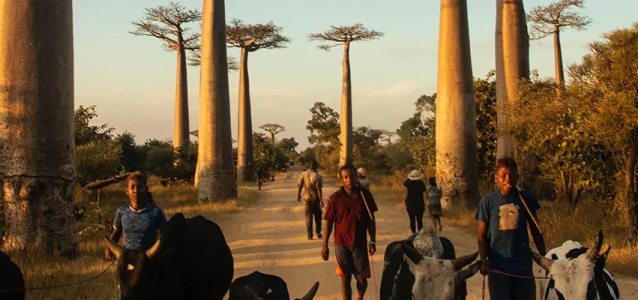Attribution of severe low rainfall in southern Madagascar, 2019-21
Main findings
• Southern Madagascar has been facing a severe food security crisis, made significantly worse by well below average rainfall from July 2019 to June 2021. This exceptional drought has affected a region with high pre-existing levels of vulnerability to food insecurity, and the impacts have been compounded by COVID-19 restrictions and pest infestations.
• Madagascar is one of the poorest countries of the world, with a particularly high proportion of people living below the poverty line in the south of the country. This makes it difficult for local communities to cope with any prolonged period of drought, particularly when subsistence agriculture and pastoralism in the region is rain-fed only.
• We chose to analyse severe rainfall deficits in this study. This was because recent research found rainfall deficits were the primary driver of drought in regions of East Africa with very similar climatic properties to south-west Madagascar.
• The rainy seasons of both 2019/20 and 2020/21 saw just 60% of normal rainfall across the Grand Sud region. This lack of rain over the 24 months from July 2019 to June 2021 was estimated as a 1-in-135 year dry event, an event only surpassed in severity by the devastating drought of 1990-92.
• Large scale teleconnections did not significantly alter the likelihood of witnessing these exceptional rainfall deficits in southern Madagascar. While past episodes of anomalously low rainfall in the region have indeed coincided with moderate El Niño events, the severe El Niño of 1997/98 saw average levels of rain in the region, while the rainy season of 2020/21 was exceptionally dry despite coinciding with a moderate strength La Niña event.
• Based on observations and climate modeling, the occurrence of poor rains as observed from July 2019 to June 2021 in Southern Madagascar has not significantly increased due to humancaused climate change. While the observations and models combine to indicate a small shift toward more droughts like the 2019-2021 event as a consequence of climate change, these trends remain overwhelmed by natural variability.
• This result is consistent with previous research, with the IPCC’s Sixth Assessment Report concluding that any perceptible changes in drought would only emerge in this region if global mean temperatures exceed 2°C above pre-industrial levels.
Paper Link:
Harrington, L.J., Wolski, P., Pinto, I. et al. 2021. Attribution of severe low rainfall in southern Madagascar, 2019-21. World Weather Attribution. .
